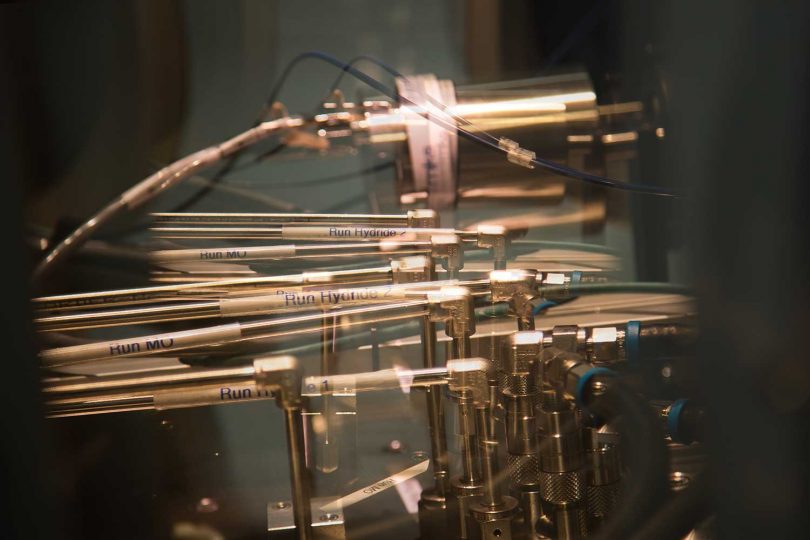New Quantum State Detected Experiments with materials for future quantum computers
A team of scientists from Braunschweig, Korea and France succeeded in generating and detecting a novel quantum state. This state is characterized by its unusual excitations, which have a “fractional” character. The research work was supported by the Cluster of Excellence QuantumFrontiers and the Metrology core research area at the TU Braunschweig and funded by the German Research Foundation (DFG). The results have been published in the magazine “Nature Communications”.
Exotic and unexpected phenomena can occur in materials with strongly interacting electrons. For example, a material can abruptly change its properties under certain temperatures and other environmental conditions: A so-called metal-insulator transition, for example, leads to a disappearance of electrical conductivity, while a superconducting state allows electrical transport with disappearing resistance. In addition, there are phases in which a “fractional” character arises from the collective behaviour of the particles. Fractional in this case means that they behave like a split, fractional particle.
An example of this effect is the fractional quantum Hall effect, which was observed on the basis of work by Klaus von Klitzing and is home to quasi-particles with a fractional elementary charge. Such fractional quasi-particles, also called “anyons”, behave differently from particles that can be described by conventional quantum mechanics. In theory, they are discussed as an important basis for future quantum computer applications. However, their experimental verification is extremely challenging.
In an international collaboration, researchers from TU Braunschweig, Chung-Ang University Seoul, Université Diderot-Paris and the Grenoble High Magnetic Field Laboratory have now found experimental evidence of this exotic phase with fractional anyons in the compound ruthenium(III) chloride (a-RuCl3).
“To this end, optical spectroscopy experiments were carried out under extreme conditions – i.e. at low temperatures around 2 Kelvin and in high magnetic fields up to 30 Tesla. The experimental results indicate that materials such as a-RuCl3 offer promising approaches for realizing future quantum computers,” says Dr. Dirk Wulferding of the TU Braunschweig.
The experiments were conducted in November 2018 in Paris at the Université Diderot-Paris, and in May 2019 in the Grenoble High Magnetic Field Laboratory. In addition, an intensive cooperation with the Korean group has existed for over ten years.
Publication:
Wulferding, D., Choi, Y., Do, S. et al. Magnon bound states versus anyonic Majorana excitations in the Kitaev honeycomb magnet α-RuCl3. Nat Commun 11, 1603 (2020). https://doi.org/10.1038/s41467-020-15370-1

